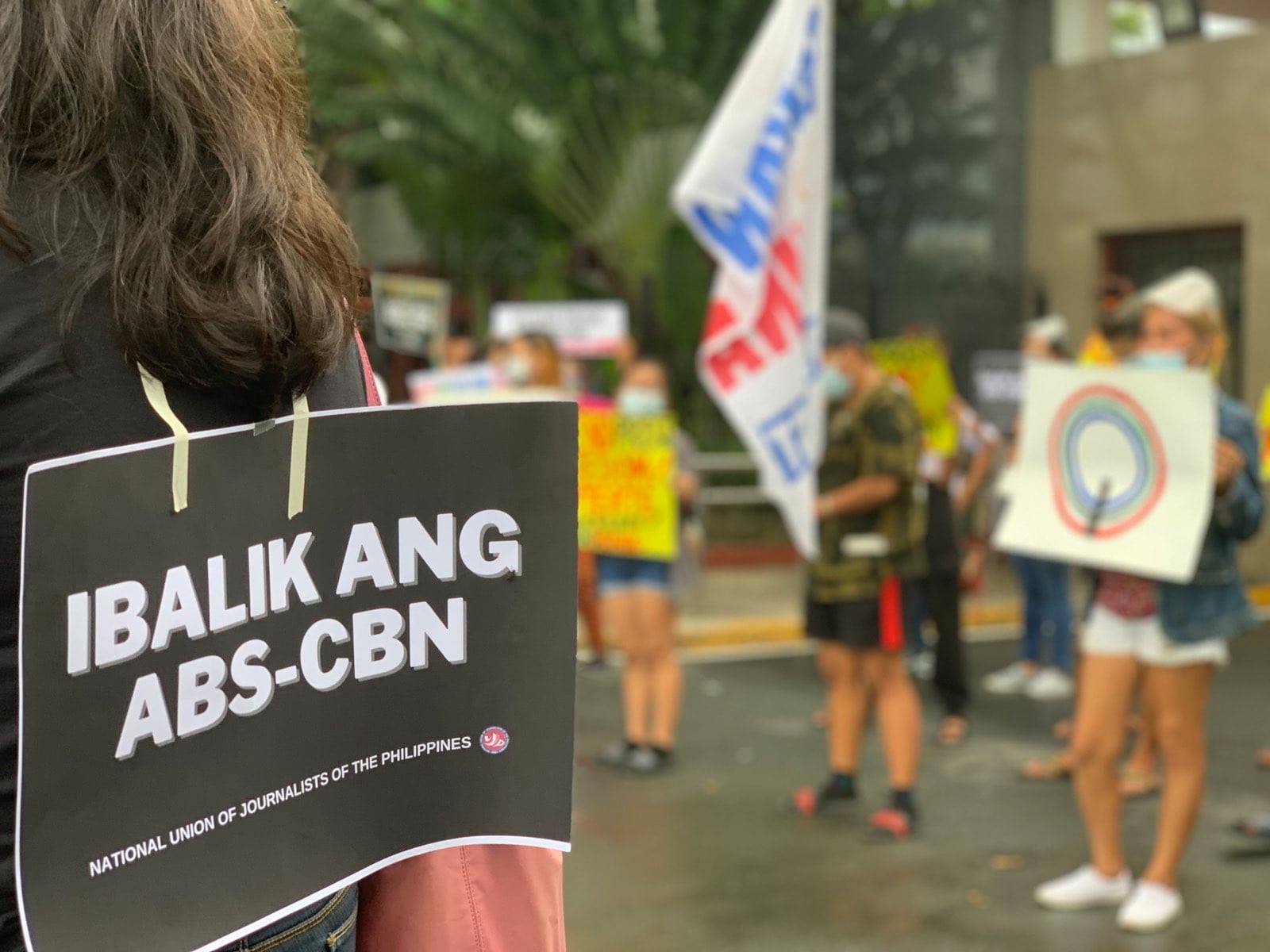Today marks a year since members of the House Committee on Legislative Franchises voted against granting ABS-CBN a new franchise, a move that press groups here and abroad called an assault on press freedom and an abuse of power.
After 13 hearings, where government regulators said issues raised against the network were either untrue or were already being addressed, lawmakers said that, in the end, it would be “the will of Congress that should be accorded due respect” and decided to leave the country’s biggest broadcast network off the air.
Among the issues raised was allegedly biased reporting and the failure to air presidential campaign ads for then-Davao City Mayor Rodrigo Duterte in the run-up to the 2016 polls. Members of Congress lined up to bring up unflattering coverage of themselves and the network’s supposed failure to, among others, hype up donations of rice that one lawmaker made.
Despite the very open threats made against the network — the president said in 2019 that he would “see to it that you’re out” — it seems few want to take credit for it now.
The Palace has said it had nothing to do with the move, saying it was a decision made by the House. Meanwhile, an official list of the voting on that day has yet to be released and, perhaps, even compiled.
Undoubtedly, the killing of the franchise is an order from Malacañang, and blindly undertaken by his cohorts without credible justification and reason.
In the meantime, the rejection of the franchise has helped bring the Philippines down two places on the Reporters without Borders World Press Freedom Index, has created a culture of fear in media, and has deprived thousands of our colleagues of jobs.
It has also deprived millions more of a source of vital and vetted information. While it is true that ABS-CBN has continued to operate, it does so at a diminished capacity. In places like areas of Catanduanes reached only by ABS-CBN, this has meant being cut off during typhoons.
While it is true that ABS-CBN is not the only news organization in the Philippines, the loss of one is a loss to us all. An attack on the biggest opens the door for attacks on the smallest and on individual journalists who may not even have a newsroom.
The pandemic year has seen an increase in threats against and intimidation of journalists. In 2020, there were 20 libel cases filed, 22 cases of intimidation and 4 killings documented. The libel cases make up nearly half of all cases reported in 2016 and intimidation rose by 43 percent since March 2020.
Thirty of the 51 cases of intimidation recorded since 2016 involved red-tagging, a tactic that government agencies also used against citizens who condemned the ABS-CBN shutdown.
But these attacks — including ones on the Philippine Daily Inquirer, Rappler and the alternative media — have shown us that we cannot treat these as individual and isolated cases.
These attacks are part of a systematic effort to undermine press freedom and freedom of information. They are part, too, of a growing culture of fear and impunity that we and the Filipino people must push back against.
As we mark this dark anniversary, the National Union of Journalists of the Philippines stands now with our colleagues in ABS-CBN and stands with each journalist who is under threat for doing their job.
Our call today is #IbalikAngABSCBN but this is part of a wider call to stop the attacks on media and to defend press freedom and democracy.
Reference:
National Directorate
+639175155991



